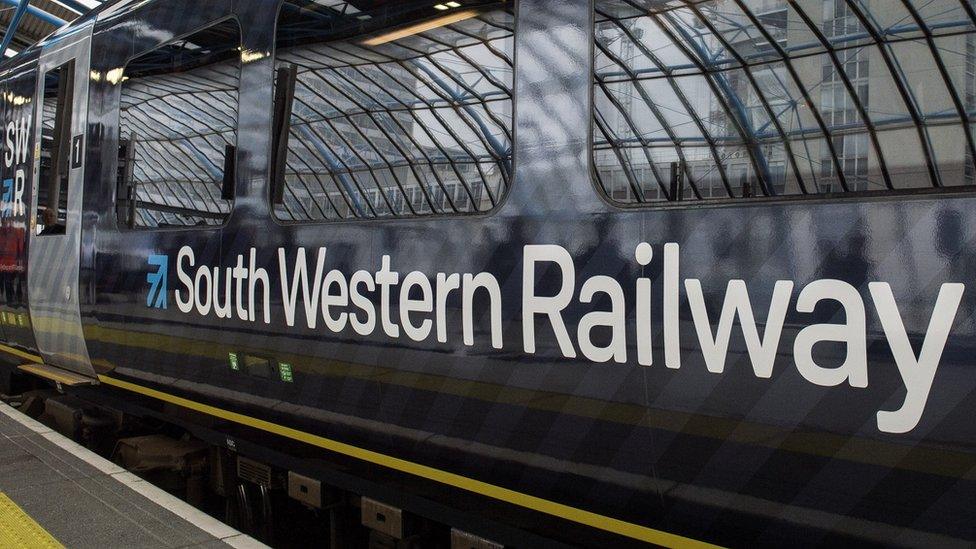South Western Railway strike: Trains 'shambolic'
- Published
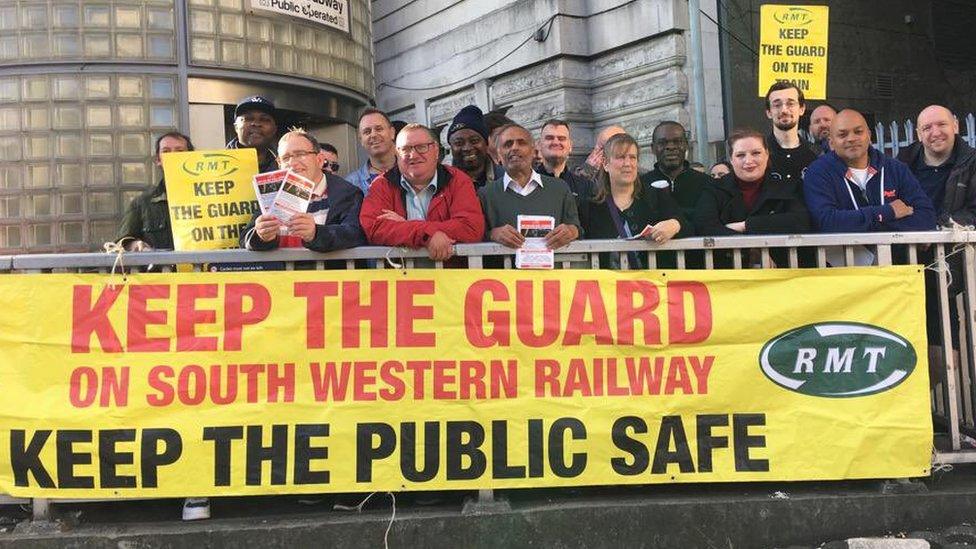
The dispute over guards has been running for two years
Commuters have described services on South Western Railway as "shambolic" and "disgusting" on the second day of a five-day strike.
Passengers have complained of overcrowded carriages on some trains, with one woman reportedly fainting due to "overheating".
Members of the Rail, Maritime and Transport union (RMT) have walked out over the role of train guards.
SWR has apologised for "continued disruption" to its services.
The operator, which runs services in London and Berkshire, Surrey, Hampshire, Dorset, Devon, the Isle of Wight and Somerset, previously said a reduced service was running across the network, external and described the action as "unnecessary".
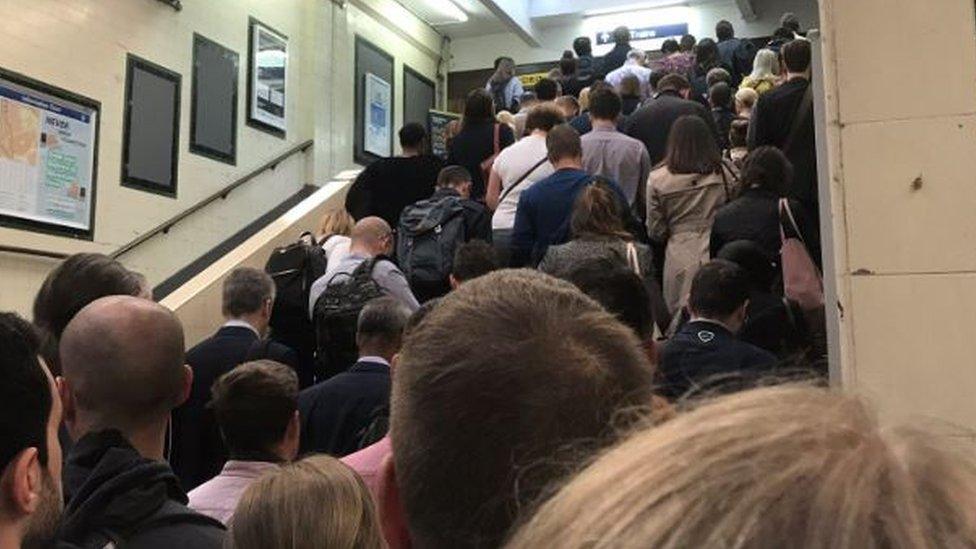
Long queues at Surbiton station were captured on Tuesday
Passengers have been venting their anger on social media.
One posted, external: "SWR have let the country down again. Shambolic", while another tweeted, external: "The heat on the non air-conditioned trains is unbearable. Packed in so tight it would be against livestock's animal rights."
Another user has been tweeting throughout his journey, external and described how a woman "collapsed" because she had "overheated".
"Physically not being able to get on a train at Surbiton because the #SWRStrike is absolutely disgusting - I left almost 2 hours before I needed to and I'm STILL not going to make it to my very important meeting," added, external another.
One posted a picture of a van she spotted in Surbiton with the former SWR branding and the words: "Stuck in a nightmare? Escape. Take the train."
Allow X content?
This article contains content provided by X. We ask for your permission before anything is loaded, as they may be using cookies and other technologies. You may want to read X’s cookie policy, external and privacy policy, external before accepting. To view this content choose ‘accept and continue’.
An SWR spokesman said: "Despite this action, services, including the additional ones we've added today, are very busy but running well with our team of contingency guards and rostered guards that have reported for work.
"We would still urge people to travel outside of the peak periods wherever possible and if they feel unwell, seek assistance from platform staff or station Help Points rather than board a train."
RMT has not yet responded to a BBC request for comment. It previously said staff had been left with no choice but to strike and accused SWR of failing to guarantee guard roles.
The long-running dispute has resulted in 29 days of industrial action by RMT members over the past two years.
It said extra early-evening trains were running between London Waterloo and Reading to help people leaving Ascot racing festival, which was affected on Tuesday.
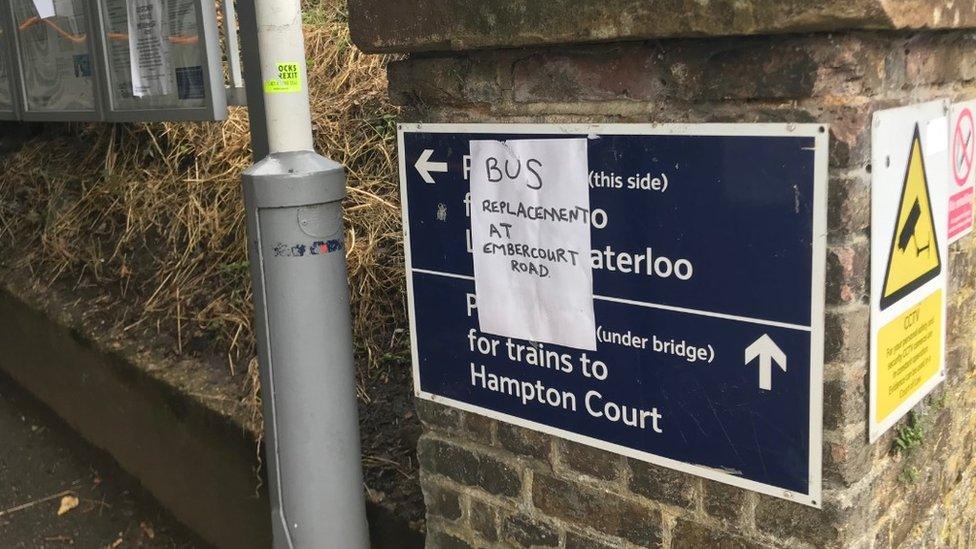
Buses are replacing buses at many stations

Analysis
By Paul Clifton, BBC South transport correspondent
The RMT's aim is to cause as much disruption for passengers as possible.
Regional organiser Mick Tosh told me: "I've heard members of the company say they need some sort of demonstration from us that we were serious about what we're doing. I think this sends a serious message."
SWR employs 900 guards, plus a further 61 in training.
Of those, 753 RMT members took part in the most recent strike ballot, in January, with 425 voting in favour of strike action.
So, in the company's view, fewer than half of all guards actually want to strike.
A few hundred people are disrupting many hundreds of thousands of passenger journeys this week.
There are many people in the rail industry who think the damage guards can inflict on passengers is out of all proportion to the number of people taking strike action.

Has your journey been affected? Email haveyoursay@bbc.co.uk, external
Please include a contact number if you are willing to speak to a BBC journalist. You can also contact us in the following ways:
WhatsApp: +44 7555 173285
Tweet: @BBC_HaveYourSay, external
Send pictures/video to yourpics@bbc.co.uk, external
Text an SMS or MMS to 61124 or +44 7624 800 100
Please read our terms of use and privacy policy
- Published18 June 2019
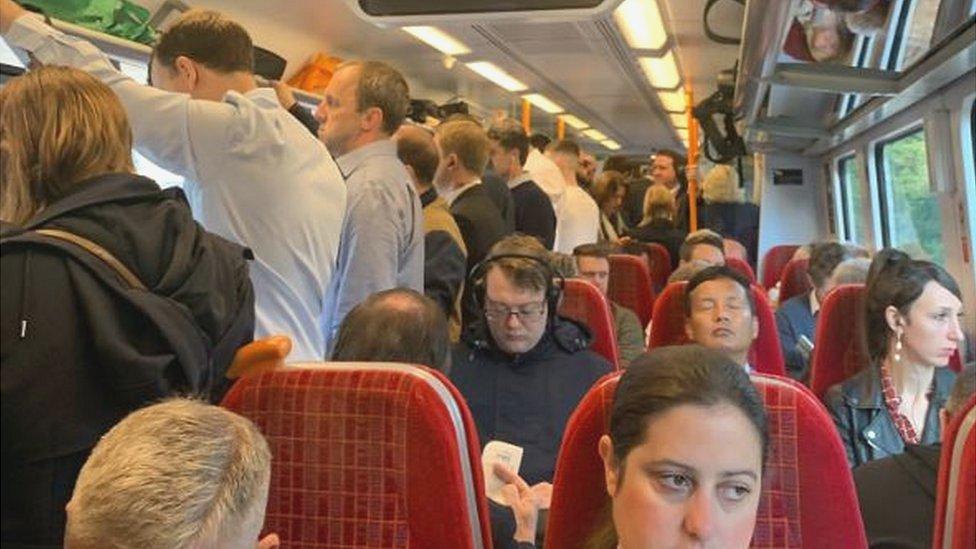
- Published17 June 2019
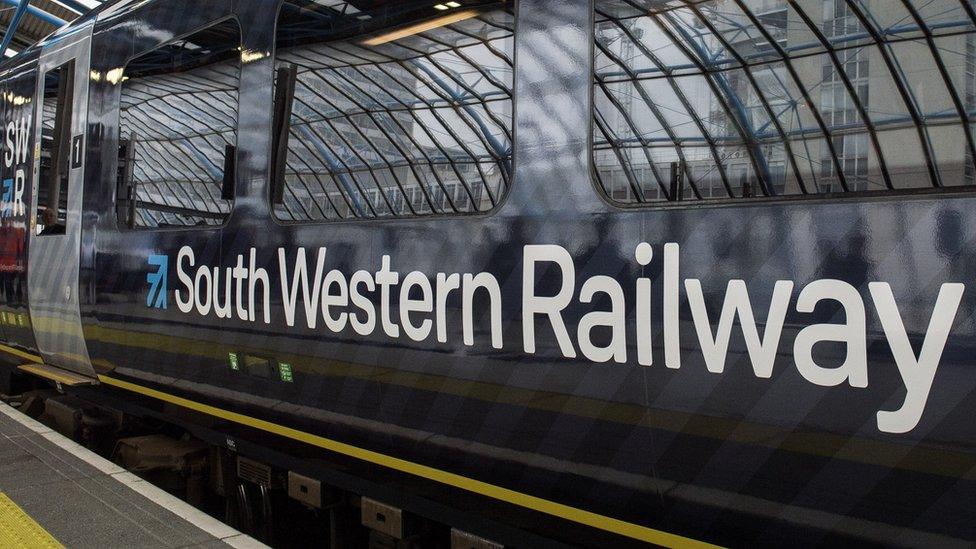
- Published18 February 2019
